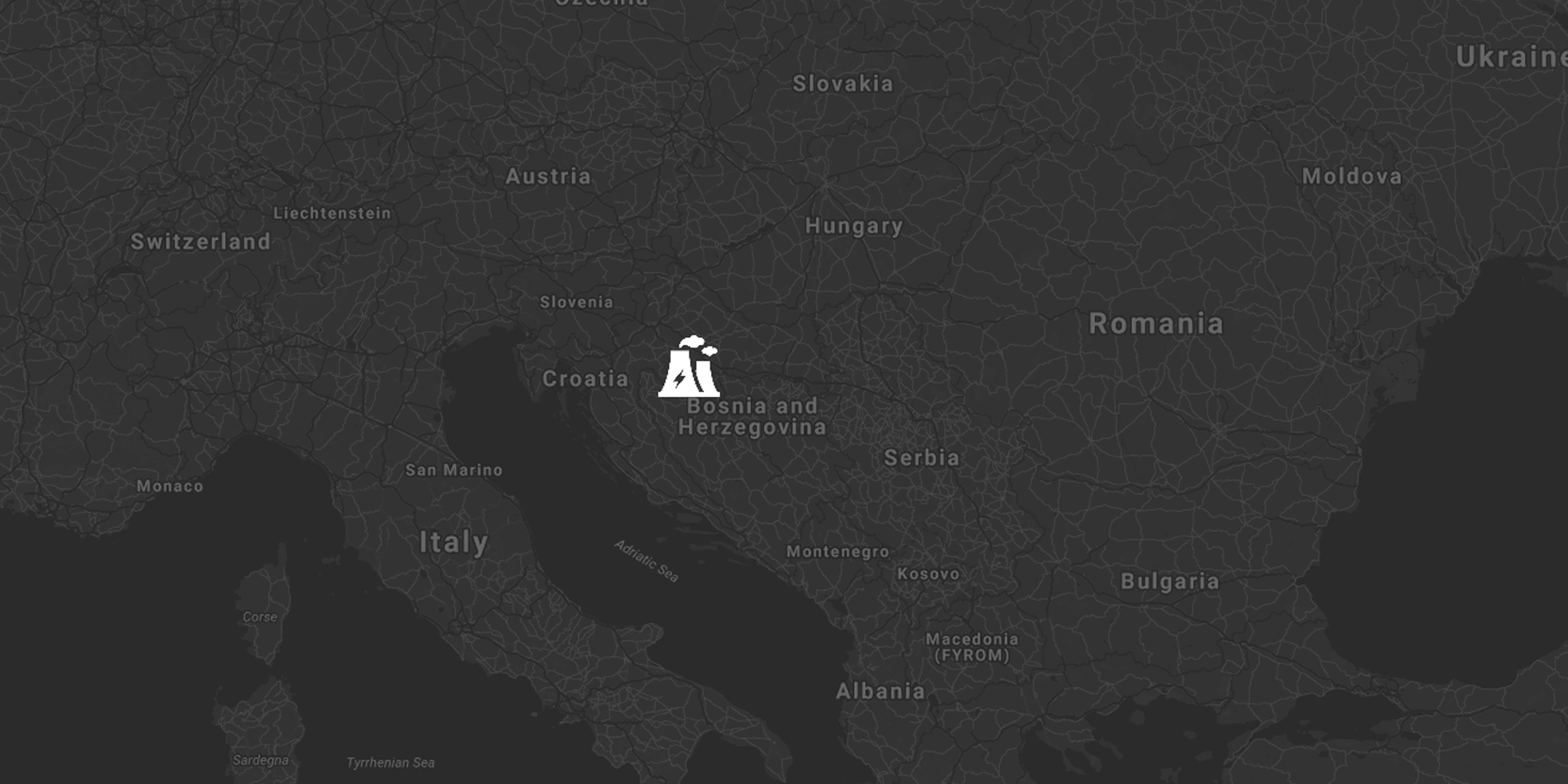Kamengrad lignite power plant, Bosnia-Herzegovina
An idea to build a power plant at the open-cast Kamengrad coal mine near Sanski Most in the Federation of Bosnia and Herzegovina has been around for years, but in November 2017 it took a step forward with the signing of a Memorandum of Understanding between Energy China International and the construction supplier Lager d.o.o. for a 2 x 215 MW plant.

Stay informed
We closely follow international public finance and bring critical updates from the ground.
Background
An idea to build a power plant at the open-cast Kamengrad coal mine near Sanski Most in the Federation of Bosnia and Herzegovina has been around for years, but in November 2017 it took a step forward with the signing of a Memorandum of Understanding between Energy China International and the construction supplier Lager d.o.o. for a 2 x 215 MW plant.
Few details are available about the plant, and it has no environmental permit and no financing. As with other plants across the region, unrealistic employment promises have already been made. In December 2017 head of the Sanski Most District Faris Hasanbegović stated that it would provide 1000 workplaces.
This does not appear to have convinced local people, however. As it would be a new power plant, it has attracted much more opposition locally than most other planned plants in the country. Sanski Most is located on the beautiful river Sana and prides itself on having no fewer than nine rivers in the district altogether. As a scenic and green area many of its residents feel that the power plant will spoil its potential for agriculture and tourism rather than bringing prosperity.
At a public debate on the adoption of the Una-Sana Canton spatial plan in August 2018, Sanski Most residents and the local council demanded the removal of the power plant project from the plan. This was carried out, although the plan was never adopted. In November 2019, another presentation of the Kamengrad coal power plant project appeared on the agenda of the Sanski Most Municipal Council. However, the meeting was cancelled after public pressure.
Another issue is that the concession for the mine was awarded to Lager d.o.o. after a bankruptcy procedure was carried out for the previous operator, RMU Kamengrad, but in 2017 the bankruptcy decision was declared illegal by the Constitutional Court of Bosnia and Herzegovina and returned to the Una-Sana Canton court.
As of early 2025, the plant is very unlikely to go ahead but has not been officially cancelled.
Latest news
Les Balkans toussent, les gouvernements bottent en touche
Bankwatch in the media | 28 January, 2020Chaque hiver, les grandes villes de la région se retrouvent sous des nuages de particules fines. De Belgrade à Pristina, la société civile s’élève contre la dépendance au charbon entretenue par les Etats.Source : Les Balkans toussent, les gouvernements
Read moreZbog termoelektrane Ugljevik BiH je na drugom mjestu liste zagađivača u Evropi
Bankwatch in the media | 26 January, 2020Troškovi liječenja stanovnika Evropske unije uzrokovani otrovnim balkanskim termoelektranama iznose između tri i šest milijardi eura na godišnjem nivou Source : Zbog termoelektrane Ugljevik BiH je na drugom mjestu liste zagađivača u Evropi
Read moreZbog termoelektrane Ugljevik BiH je na drugom mjestu liste zagađivača u Evropi
Bankwatch in the media | 26 January, 2020Troškovi liječenja stanovnika Evropske unije uzrokovani otrovnim balkanskim termoelektranama iznose između tri i šest milijardi eura na godišnjem nivo. Source : Zbog termoelektrane Ugljevik BiH je na drugom mjestu liste zagađivača u Evropi
Read moreRelated publications
Beyond the scoreboard: Energy sector transformation under the Reform and Growth Facility for the Western Balkans
Report | 5 December, 2025 | Download PDFThis analysis offers an overview of the energy-related reforms from Albania, Kosovo, Montenegro, North Macedonia and Serbia and then evaluates the countries’ progress.
A perfect storm: The Western Balkans power sector in the time of CBAM
Report | 29 October, 2025 | Download PDFStarting with the EU’s Carbon Border Adjustment Mechanism (CBAM) full implementation in January 2026, most electricity generation companies in the Western Balkans will be heavily affected.
Comply or Close 2025: Seven years of deadly legal breaches by Western Balkan coal plants
Report | 17 June, 2025 | Download PDFThe end of 2024 marked seven years since the deadline passed for power plants in the Western Balkans to meet new air pollution standards.
